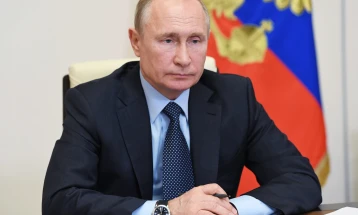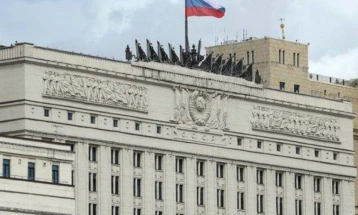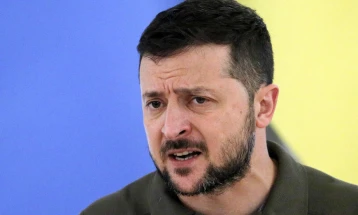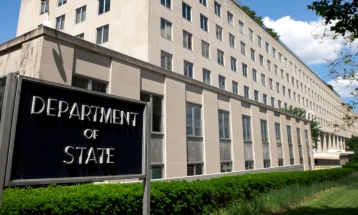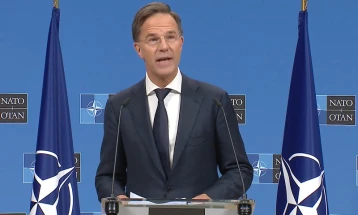German president dissolves parliament, sets February 23 election date
- German President Frank-Walter Steinmeier has dissolved parliament and set elections for February 23, seven months earlier than originally planned.
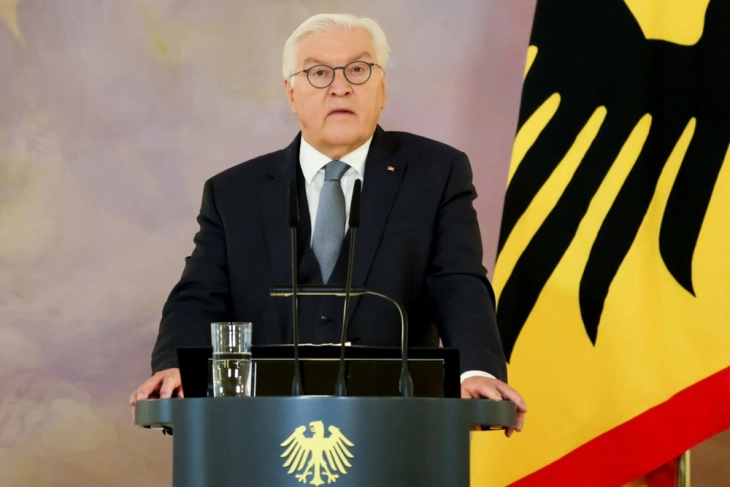
Berlin, 27 December 2024 (dpa/MIA) - German President Frank-Walter Steinmeier has dissolved parliament and set elections for February 23, seven months earlier than originally planned.
Steinmeier's decision on Friday was expected and follows the collapse of Chancellor Olaf Scholz's three-party coalition in November and a failed confidence motion in his government on December 16.
The parliamentary leaders of the Scholz's Social Democrats (SPD) and the conservative Christian Democrats (CDU) had already agreed on the February date.
Article 39 of Germany's Basic Law, or constitution, stipulates that a new election must take place within 60 days of the confidence vote.
Scholz, whose squabbling government had been in a state of political paralysis for months, faces a tough bid for re-election. In recent opinion polls, the CDU has held a lead of around 10 points over the SPD.
Steinmeier said on Friday that political stability is a valuable asset in Germany, describing the dissolution of the lower house of parliament, or Bundestag, and early elections as exceptions to the rule.
"But especially in difficult times like now, stability requires a government capable of taking action and reliable majorities in parliament," the president said in explaining his decision.
"The current government, according to the vote on the confidence motion, no longer has a majority, but I could not discern any majorities for a differently composed government in my discussions.
"Therefore, I am convinced that new elections are the right way forward for the good of our country," Steinmeier said.
The Basic Law, he mentioned, has made provisions for this situation. The current Bundestag will continue to function until a new one has been constituted.
"Our democracy works, even in times of transition," the president said.
Steinmeier pointed to the prolonged debate over whether and how to conduct a new election and the forthcoming election campaign. Afterwards, it will be time "for problem-solving to once again become a core business of politics," Steinmeier said.
Steinmeier stated that the next federal government faces significant tasks. "Therefore, in the coming weeks, it must be about finding the best solutions for the challenges of our time," he said.
He mentioned the economically uncertain situation endangering companies and jobs, the wars in the Middle East and Ukraine with their impacts also felt in Germany, the pressing issues of steering migration and integration, climate change, as well as peaceful and secure coexistence in the country.
The debate about the best solutions can, of course, be conducted with emphasis and sharpness, especially in the election campaign, the president said.
"Our liberal democracy can accommodate this, or more so, it needs the competition of ideas," said Steinmeier. "But I expect this competition to be conducted with respect and decency – if only because, after the election, the art of compromise will be required to form a stable government."
He spoke out against attempts of external influence. Violence and anything that prepares for it must have no place in the election campaign, he said.
"Defamation, intimidation, violence: All of this is poison for democracy. All of this damages our democracy. We must denounce violence! That is what I expect from all those seeking responsibility."
Scholz's vote of confidence was only the sixth in the history of the post-war Federal Republic of Germany. Friday marks the fourth time that the Bundestag was subsequently dissolved. The previous occasions were the governments of Willy Brandt (SPD) in 1972, Helmut Kohl (CDU) in 1982 and Gerhard Schröder (SPD) in 2005.
There is not much times for the parties to campaign before the February 23 election day.
The SPD and far-right Alternative for Germany (AfD) plan to finalize their top candidates and approve their manifestos during the weekend of January 11-12. The Greens plan to hold their party conference on January 26, the CDU on February 3, its Bavarian sister party the Christian Social Union (CSU) on February 8, and the Free Democrats (FDP) on February 9.
On the evening of February 9, the first television debate is scheduled on public broadcasters ARD and ZDF between SPD Chancellor Scholz and his CDU/CSU challenger Friedrich Merz.
A week later, the private channel RTL has invited the two contenders into the television studio. The expected last session of the Bundestag before the election – the general debate on February 11 – is likely to become part of the election battle.
Regardless of the election's outcome, the new Bundestag will be much smaller. Due to the centre-left coalition's election law reform now taking effect, the number of seats will be limited to 630. For comparison: in 2021, 735 deputies were elected to the Bundestag.
Photo: EPA
